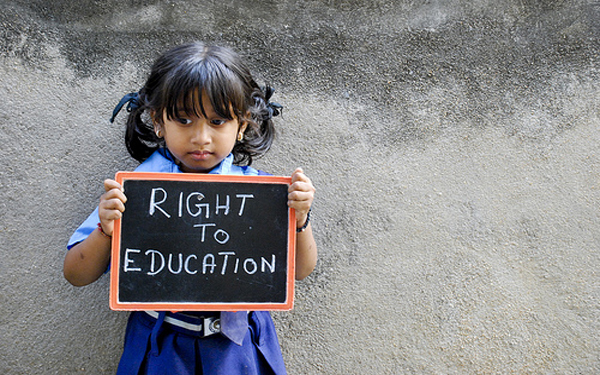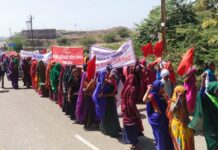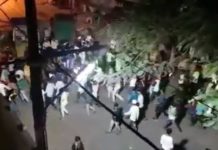The government of India has agreed to allow the World Bank (WB) to intervene in the Indian school education system through Strengthening the Teaching-Learning and Results for States (STARS) program.
The World Bank Board announced on their website on 24th June 2020 that the Executive Directors of WB have approved a $500 million STARS project to improve the quality and governance of school education in India.
STARS is to be implemented in six states on a pilot basis. These states are Himachal Pradesh, Kerala, Madhya Pradesh, Odisha, Maharashtra, and Rajasthan.
All India Forum for Right To Education (AIFRTE), a federal platform of more than 80 students, youth, teachers and civil society organization from all over India has opposed the Government of India’s move to surrender school education to the World Bank under the STARS program.
In its open letter to PM Modi dated 24th June 2020, they have questioned the hypocritical stances of his government. They have noted that the government calls to create ‘Atmanirbhar Bharat’ on one end and then invites the World Bank to design and monitor school education in India.
The Forum has expressed its angst against the Union Government’s move to allow World Bank intervention yet again after DPEP( District Primary Education Program) and SSA (Sarv shkisha Abhiyan).
The STARS program would focus on influencing teaching-learning content, practices and outcomes of the school education system from ECCE (Early Childhood care and education) onwards. It also envisions training and monitoring of the faculty to implement the same. It would not only formulate and implement governance reforms but also train educational officials and parents to participate in its implementation. It also would create “merit-based” learning assessment systems.
Financing of STARS Program
The overall expenditure for the years 2019-25, under the GOI’s Samagra Shiksha Abhiyan is estimated to be at 36 Billion US Dollars. The STARS will be a component of the Samagra Shiksha Abhiyan. The WB would support this proposed ‘reforms’ in the education system financially to an extent of 14.93% over a period of six years. The government of India and the state governments will bear up to 53.43% and 31.64% of the costs respectively. Hence, the WB’s contribution will only be 1.4% of the total expenditure on school education to be made by GOI and State/UT governments. AIFRTE has questioned why the government cannot mobilize an additional 1.4% when it can mobilize 98.6% of the funds.
Experience of the District Primary Education Program (DPEP):
The WB contributed almost the same proportion of funds to the District Primary Education Program (DPEP) in the 1990s. The DPEP was also designed and pushed forward by the WB. It was implemented in almost half of India’s districts across 18 states between 1993 and 2002. It led to the rapid deterioration of quality in state-funded school education systems. DPEP resulted in the loss of the credibility of the state-funded schools amongst common people, especially the SCs, STs, OBCs, Muslims and Denotified Tribes amongst other impoverished sections.
Rapid Privatization of Education post DPEP
It also resulted in rapid privatization and commercialization than what was witnessed ever before. WB, primarily an institution concerned with the interests of the International Financial Capital. It has never been an organization concerned about educational rights or pedagogical concerns. Providing quality education to the masses of students deprived of educational opportunities is not a concern for the world bank. Inducing privatization to provide for the free-market principles to thrive in the sector of education is its ideological agenda. The negative experience of DPEP was ignored and WB’s intervention in India’s school education has continued from 2002 till now under the Sarva Shiksha Abhiyan.
The STARS Program will be the third round of intervention in India’s School Education system. The letter argues that Modi’s Government has disregarded the experiences of transformative educational philosophy including anti-caste, anti-imperialist and pro-socialist legacies available in India.
Exclusion of Masses from the Education System:
AIFRTE has argued that the program is not initiated due to a lack of financial resources. It has alleged that the present Modi Government is in line with World Bank’s free-market ideology. Hence, it is against the constitutional ideal of building an egalitarian education system based on social justice free from discrimination. This would destroy the public education system and exclude 85% of the population including SCs, STs, OBCs, Muslims, Denotified Tribes. This massive exclusion would be implemented under various pretexts like discrimination,’ low’ performance in pro-market and pro-elite assessments, low attendance of students during the post-Covid-19 period, undermining the social justice programs like reservations, scholarships, and fellowships. It would also push subtly Bahujans to vocational streams thereby denying them access to higher education and professions.
AIFRTE has also informed that it would return with a detailed issue-wise critique of the STARS program. They have asked the government to outrightly reject the WB project. If the government fails to do so, Atmanirbhar Bharat would be understood as yet another ‘Jumla’. They have also called upon the government to undertake new programs to reconstruct India’s education system from KG to PG by taking inspiration from the twin anti-caste and anti-imperialist socialist legacies in consonance with the Constitution.





























[…] Read: Why Right to Education activists oppose the World Bank-funded STARS program […]